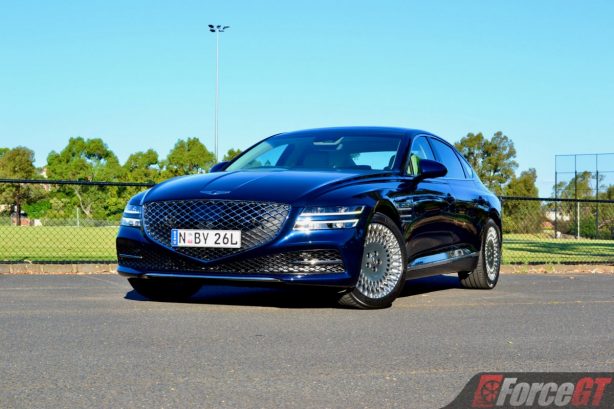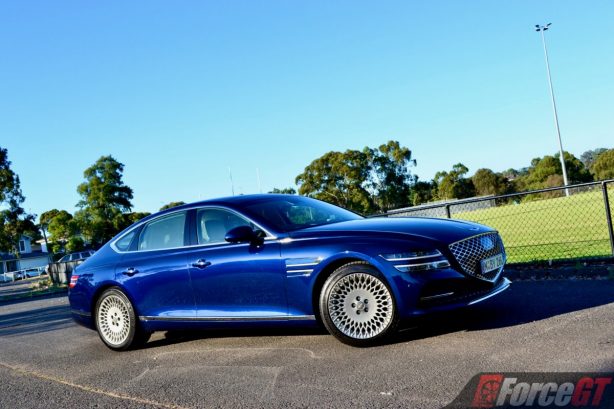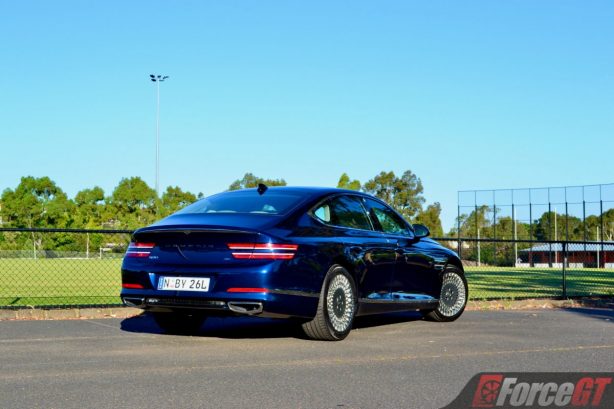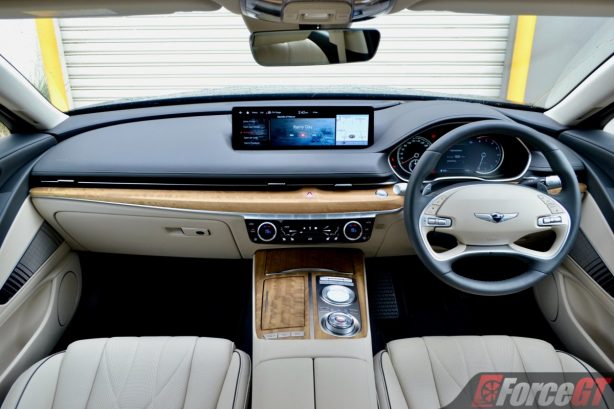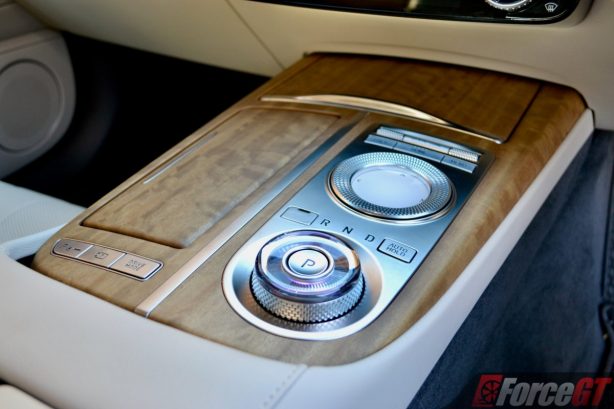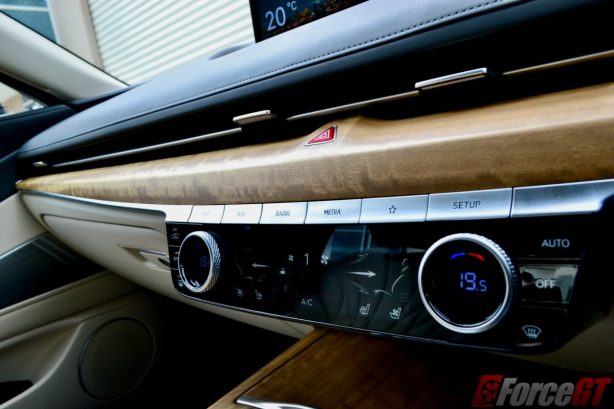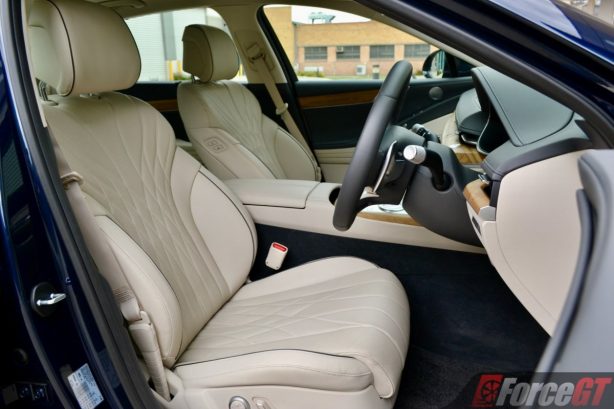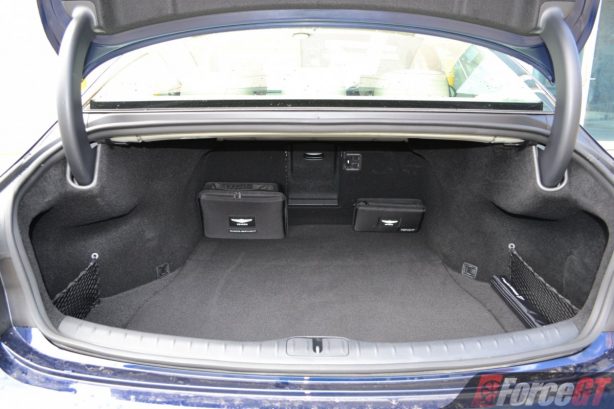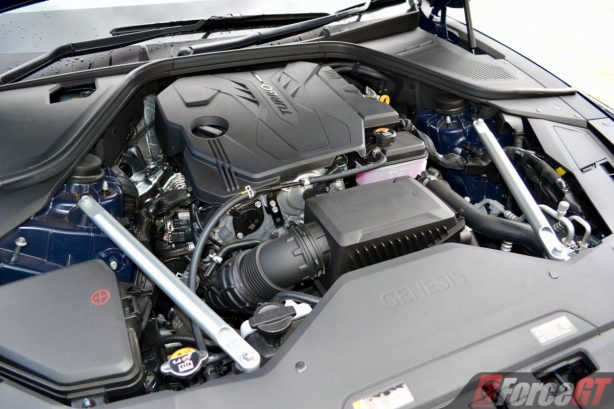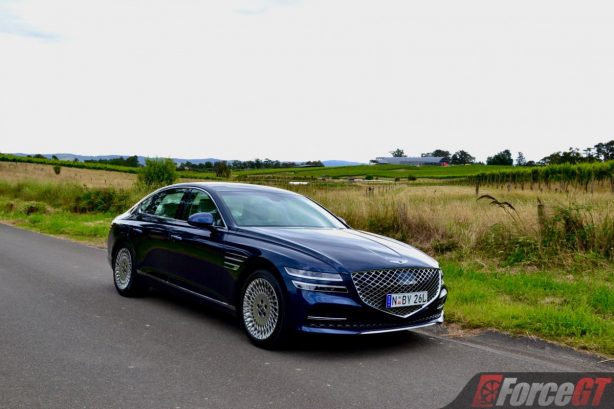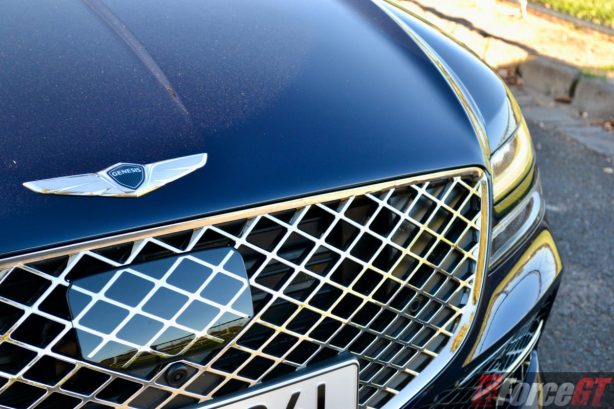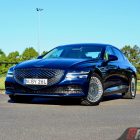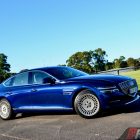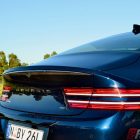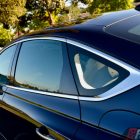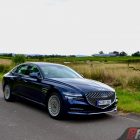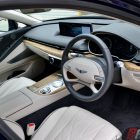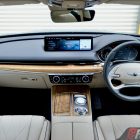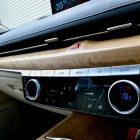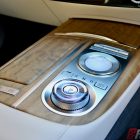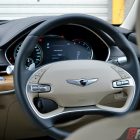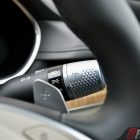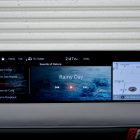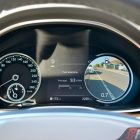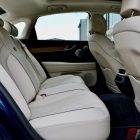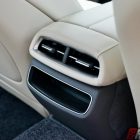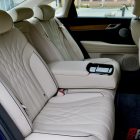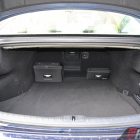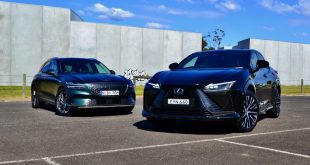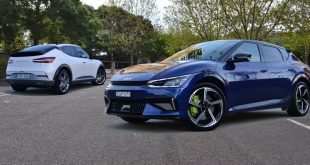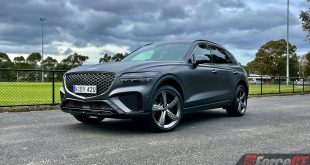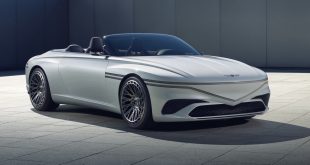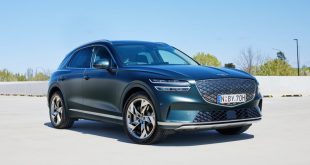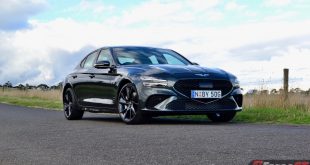Hyundai’s luxury aspiration started with the Genesis mid-size sedan. Launched in Australia in 2015, it was introduced as part of Hyundai’s passenger car line-up, and was called the Hyundai Genesis, even though there wasn’t a single Hyundai badge in the vehicle.
Luxuriously appointed, the Genesis was sized, equipped and marketed as a more affordable rival to the likes of BMW 5 Series, Mercedes-Benz E-Class, Audi A6 and Lexus GS. While it didn’t quite resonated with private buyers, it was popular amongst fleet operators which used it as premium taxis and luxury airport transfer vehicles.
We drove it and was impressed with its quality and luxury driving feel but felt it could be less generic and more contemporary. Nevertheless, it was a commendable first attempt by Hyundai at the luxury space.
Now, there is an all-new 2021 model and it bears no resemblance of its forebear other than the winged-Genesis badge. It doesn’t even have Hyundai in its name, with it crafting its own Genesis brand identity and called simply as the G80.
The Genesis G80 will continue to rival the best from Europe and Japan, with pricing once again undercutting most key rivals, but not by much this time. Base price starts from $84,900 plus on-road costs for the G80 2.5T, while the upper-spec G80 3.5T wears a sticker of $99,900 plus ORCs. The prices are still about $10,000 less than equivalent models from the European establishment.
Without further ado, let’s see how the Genesis G80 fare.
How does it look?
The G80 certainly looks very good, in a very authentic way. While the previous model carried hints of Audi and BMW in its styling cues, this new one looks not at all Germanic and is very original in its design execution. That’s a good thing because to play in the premium segment, Genesis needs to have its own unique identity.
Distinctively Genesis are the two lines of the quad lamps circumventing all sides of the car, with the indicator light bar neatly integrated within. The ‘Crest Grille’ is bold and big but appropriately so as it only serves to reinforce its visual statement, giving it unmistakable road presence. Down the side, the long sweeping parabolic line flows uninterrupted from front to rear, flowing gently downwards as it nears the tail, where it’s counterbalanced with an upswept chrome line at the edge of the boot lid.
The overall look is one that is majestic, luxurious and refined, though we are not fans of the multi-spoke 19-inch wheels on our G80 2.5T model. The 20-inch five-spoke sport wheels on the G80 3.5T are much easier on the eyes.
How is the interior?
The cabin is no doubt the highlight of the whole package, as it looks and feels like it belongs to a car that is twice the price. The materials are first rate, the execution is flawless, and the vibe is ultra-premium, super-exquisite. There’s not a hint of its association with parent company Hyundai, though the organic lines on the door cards do remind us of those in the Lexus LC.
This interior is easily one of the best we have seen in this class, and that includes the Mercedes E-Class.
Perched atop the expansive dashboard is a 14.5-inch widescreen infotainment display, which can be operated by touch or through the remote controls in the centre console. While the screen itself has superb clarity and is very responsive to the touch, we find the remote control not the most intuitive to use. The control combines a rotary dial, arrow buttons and a round touchpad all into one, which can lead to a confusing user experience. It’s like combining the BMW iDrive, Audi MMI and Lexus Remote Touch into one messy system.
Granted, the menu structure is easy to navigate around, with the exception for address input, where there is a lack of address suggestion, requiring you to key in the full address.
Elsewhere, the 12.0-inch Head-Up Display is massive but for those who prefer less clutter, there’s no option to hide the lane trace assist indication. The standard instrumentation cluster combines a conventional analogue gauge with a LCD display, with the optional Luxury Package offering a super cool 12.3-inch 3D instrument cluster that gives a sense of depth to the virtual gauges.
Other convenience and luxury features standard in G80 include wireless (Qi standard) smartphone charging, 12-way power-adjustable heated and ventilated front seats, a panorama sunroof, DAB+ digital radio, Apple CarPlay and Android Auto connectivity, and a 21-speaker Lexicon surround sound system, the later which lacks bass for what is supposed to be a premium system.
The interior comes with the choice of five upholstery colour combinations, paired with two open-pore real wood trims. Each upholstery combination is in a contemporary two-tone, except for the classic Obsidian Black single-tone treatment.
Is it practical?
The G80 is a medium size sedan that sits five. There is ample room for all passengers, with legroom especially generous in the back to cater for owners who are primarily chauffeured around. That said, the middle rear seat is raised fairly high, limiting comfort for anyone seated there.
All seats apart from the middle rear are some of the plushest in the business, with electric adjustment, heating and cooling fitted as standard to the front seats. Opting for the Luxury Pack option will see the addition of rear climate control and rear outboard seats heated and cooled, as well.
There’s no shortage of storage compartments around the cabin, with a good size glove box and centre storage. The door pockets are on the smaller side, though.
Further back, the boot offers 424 litres of capacity, which is nearly 100 litres down on key rivals. There’s no ability to expand the space further like its competitors either, as the rear seats don’t fold down.
What are the specs?
The G80 is offered with a choice of two petrol powertrains, both paired with an in-house developed 8-speed automatic transmission.
The G80 2.5T tested here utilises a 2.5-litre turbocharged four-cylinder engine developing 224kW @ 5800rpm and 421Nm @ 1650-4000rpm, all of which channelled to the rear wheels. The dash from zero to 100km/h is a claimed 6 seconds, a respectable time for a big sedan.
But for those who want more punch, there’s the G80 3.5T which is motivated by a 3.5-litre twin-turbocharged V6 pumping out 279kW @ 5800rpm and 530Nm @ 1300-4500rpm. Offered as standard in all-wheel drive form, the flagship model charges from rest to 100km/h in just 5.1 seconds (claimed).
In terms of safety, both G80 variants take no compromises, featuring as standard the full suite of advanced safety tech including Forward Collision-Avoidance Assist, Lane Keep Assist, Blind-Spot Monitoring, Rear Cross Traffic Alert, Adaptive Cruise Control, Auto High Beam and Surround View Monitor. There are also a total of 11 airbags, including front centre and driver knee airbags.
How does it drive?
Most luxury cars these days, especially those from Europe, are increasingly chasing sporty handling more than comfort. Genesis seems to have taken an opposite approach with the G80, in the sense that it feels more luxurious than sport.
This distinctive, rather old school driving feel reminded us of what luxury sedans used to be – plush and supremely comfortable transportation. The G80’s soft suspension and big wheels soak up bumps and ruts with aplomb, delivering a super smooth ride that is a rarity these days. It’s very quiet on the inside, too, with hardly any road or wind noise.
With such compliance and comfort, it does mean the G80 isn’t as taut around the bends as sportier key rivals. That’s not to say it’s cumbersome or floaty, far from that in fact. It’s still very manageable and it doesn’t quite feel its size. With a precise and nicely weighted steering, this is a very easy and relaxing car to drive.
The silky smooth 2.5-litre engine in our G80 test car is more than adequate for the daily grind. Power delivery is linear for the most part, with a strong mid range offering tenacious acceleration. Granted, there’s not much of a soundtrack but the G80 wasn’t intended to be a sports sedan from the outset.
Like the engine, the 8-speed auto is tuned more for refinement and smoothness than for dishing out quick, snappy shifts. Left to its own devices, it picks the right gear most of the time.
While fuel consumption is far from thirsty, it isn’t what we would consider efficient. In urban areas fuel use hovers around at a high 12L/100km, dropping to around 7L/100km in the country. At the end of our week-long road test covering over 500km of mix roads, the trip computer averaged 9.3L/100km, against a rated 8.6L/100km. The rated figure is about 2L/100km higher than the more efficient German rivals.
Verdict
Design & Comfort
Performance & Handling
Quality
Economy
Equipment & Features
OUR SCORE
4.1/5
+ Plus
- Opulent interior
- Comfortable ride
- Generous equipment
- Excellent value
– Minus
- Not as sporty to drive as rivals
- Small boot
- Not the most fuel efficient
Overall
The new Genesis G80 is a big step up from its predecessor, boasting a significantly more upscale design inside and out, matched with a superbly luxurious driving experience.
Against the wider competition, the G80 stands out with one of the best interiors in class. But more than that, its value proposition is hard to ignore. Not only does its price undercut all key rivals, it also comes with a longer list of standard equipment, free scheduled servicing for the first 5 years or 50,000km, and the segment’s longest warranty period at 5 years and unlimited kilometres.
If you dare to be a bit different, the Genesis G80 is definitely worth a look.
2021 Genesis G80 2.5T pricing and specification
| Price (Excl. on-road costs): | From: $84,990 As tested: $84,990 |
| Warranty: | 5 years/unlimited kilometres |
| Warranty Customer Service: | 5 years road side |
| Country of Origin: | South Korea |
| Service Intervals: | 12 months/10,000km |
| Engine: | Turbocharged 2.5-litre inline four-cylinder direct/multi-point injected petrol: 224kW @ 5800rpm, 422Nm @ 1650-4000rpm |
| Transmission: | 8-speed automatic |
| Drivetrain: | Rear-wheel drive |
| Power to Weight Ratio (W/kg): | 119.9 |
| 0-100km/h (seconds): | 6.0 |
| Combined Fuel Consumption (L/100km): | Claimed: 8.6 / Tested: 9.3 |
| RON Rating: | 95 |
| Fuel Capacity (L): | 65 |
| Body: | 4-door sedan, 5 seats |
| Safety: |
|
| Dimensions (L/W/H/W-B) mm: | 4,995/1,925/1,465/3,010 |
| Turning Circle Between Kerbs: | 11.62 |
| Ground Clearance: | 140 |
| Tare Mass (kg): | 1,869 |
| Boot Space (L): | 424 |
| Entertainment: |
|
Competitors: BMW 5 Series, Mercedes-Benz E-Class, Audi A6, Volvo S90, Jaguar XF
 ForceGT.com Car News, Car Reviews, Video Reviews, Tuning and much more.
ForceGT.com Car News, Car Reviews, Video Reviews, Tuning and much more. 